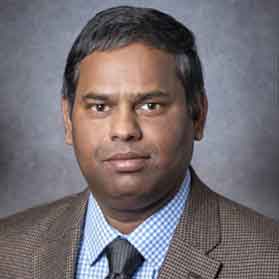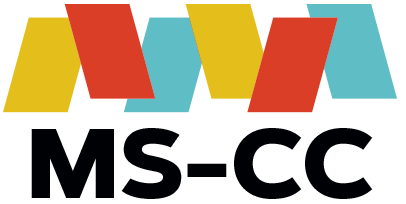By Apryl Motley – Communications Consultant, MS-CC
Editor’s Note: This Q&A continues off our series of short interviews spotlighting members of the MS-CC community. Be on the lookout for additional interviews each month, and email Apryl Motley if there’s an MS-CC community member you like us to spotlight in the future or if you would like to be in the spotlight yourself. We appreciate community members and all they do to move our mission forward.
Dr. Uttam Ghosh is an associate professor of cybersecurity, computer science, and data science, in the School of Applied Computational Sciences at Meharry Medical College, in Nashville, Tenn. The most enjoyable part of his job? He mentors students and conducts research in areas like cyberinfrastructure, internet of things security, AI-driven cyber analytics, and quantum machine learning.
“I am passionate about developing solutions for intelligent healthcare systems and human-machine teaming, while advancing post-quantum cryptography,” Dr. Ghosh said. “Overall, I thrive on the opportunity to push the boundaries of technology and contribute to critical infrastructure advancements.”
Read on to learn more about how participation in the MS-CC has been beneficial to him.

More About Dr. Ghosh
His Personal Motto: Empower through knowledge and hands-on experience, innovate with purpose, and lead with integrity.
Best Advice He Ever Received: Your impact as a faculty member is measured not by your individual achievements, but by how you empower and uplift your students.
Q: How does participation in the MS-CC help you in your current role?
Participation in the MS-CC provides invaluable opportunities to enhance Meharry Medical College’s cyberinfrastructure, research capabilities, and educational programs. As an academician and researcher focused on secure and distributed computing for healthcare applications, the MS-CC helps me stay informed about emerging technologies, funding opportunities, and best practices for securing and expanding computational resources. Additionally, the networking and collaboration opportunities enable me to build strategic partnerships that further support my work in healthcare cybersecurity, privacy-preserving computing, and AI-driven solutions for healthcare applications.
Q: Is there a particular resource that you find especially useful?
One of the most valuable resources is access to the MS-CC’s collaborative network, funding guidance, and expertise in cyberinfrastructure development. The shared knowledge and best practices from peer institutions help with navigating challenges related to high-performance computing, secure networking, and AI-driven research in healthcare. Additionally, the MS-CC’s connection to federal agencies like NSF, including the National Artificial Intelligence Research Resource (NAIRR), which envisions a shared national research infrastructure for responsible AI discovery and innovation and provides crucial insights into funding and policy initiatives aimed at advancing AI and computational research.
Q: How did you/your institution first become involved with the MS-CC?
Meharry Medical College joined the MS-CC consortium in 2023 as part of its commitment to expanding cyberinfrastructure capacity planning and workforce development. In 2024, Meharry partnered with Fisk University to organize a 10-week, fully funded 2025 Undergraduate Summer Research Internship, supported by MS-CC. This collaboration highlights our shared mission to integrate data science and computational research into student training programs. MS-CC’s support has allowed us to create meaningful research opportunities that help prepare students for graduate studies and careers in STEM fields.
Q: What would you say to encourage other institutions to participate in the MS-CC?
I would strongly encourage other HBCUs/TCUs to join MS-CC because of the tangible impact it has on research, education, and student development. The 2025 Undergraduate Summer Research Internship at Fisk University in partnership with Meharry Medical College is a great example of how MS-CC fosters collaborative, hands-on learning experiences that prepare students for the future. By participating in MS-CC, institutions can access funding, expert networks, and high-impact training programs that enhance their research infrastructure and empower students to excel in computational and data-intensive fields.
Q: Why does participation in the MS-CC continue to be important for your institution?
Ongoing participation in MS-CC is crucial for Meharry Medical College as we continue to expand research opportunities, develop new educational programs, and enhance our computational infrastructure. The 2025 Undergraduate Summer Research Internship exemplifies how MS-CC supports faculty mentorship, student research training, and workforce development in areas such as AI, cybersecurity, and data science. Additionally, MS-CC aids in cyberinfrastructure-centric capacity planning and workforce development. Through these initiatives, we are able to equip students with essential technical skills and strengthen our institution’s impact in computational research and education.
Ready to Get Involved?
Joining the MS-CC as a participant is simple, quick, easy – and free! Fill out the form , join the mailing list, and stay informed about upcoming meetings and activities.
About the MS-CC
The MS-CC aims to strengthen cyberinfrastructure for research and education across a wide range of fields and communities, taking into account the education, research, and service missions of participating institutions. In partnership with Internet2, the MS-CC received funding from the National Science Foundation to support this vision: OAC Award # 2137123 and OAC Award # 2234326.
